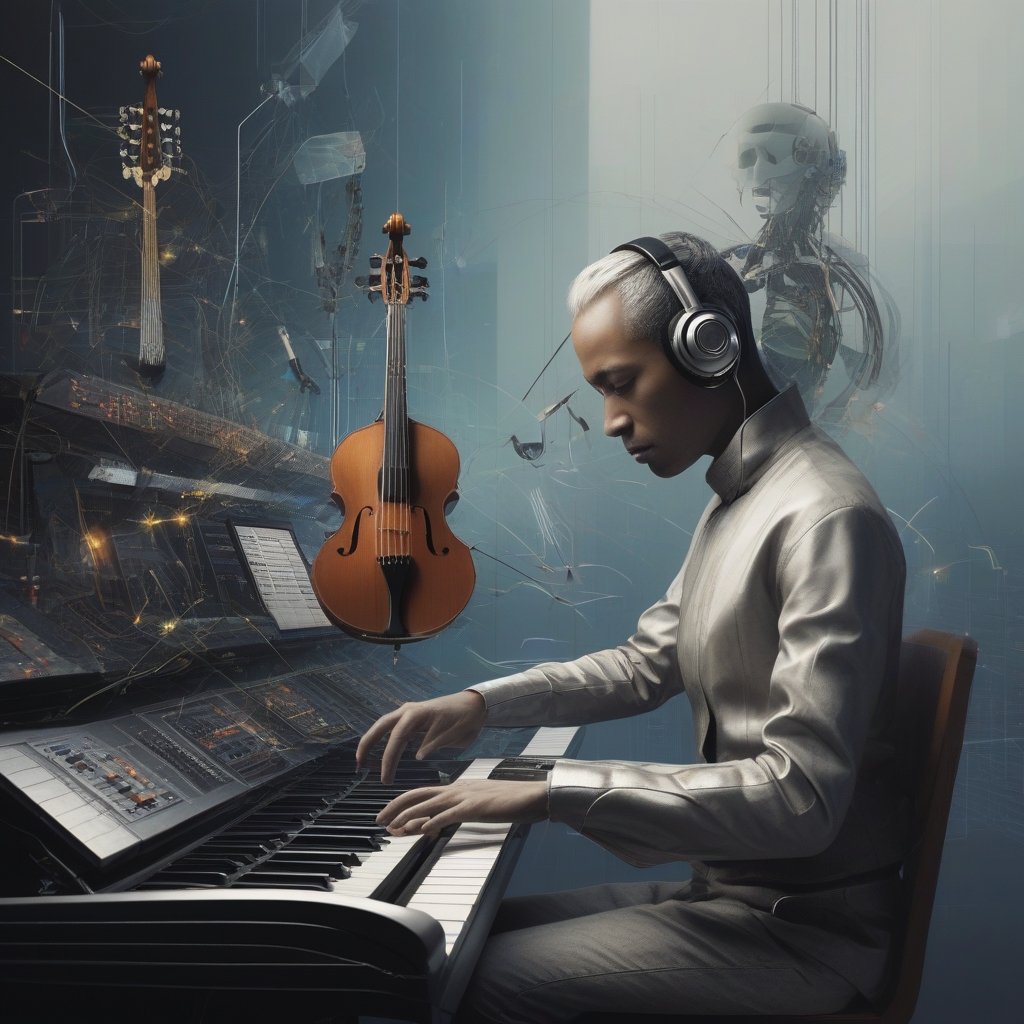Introduction: AI’s New Role in Music
In recent years, the music industry has seen groundbreaking advancements with the advent of Artificial Intelligence (AI) tools. These innovations promise to democratize music creation, allowing anyone with a passion for melodies to craft compositions without traditional expertise. However, this transformation is met with a mix of enthusiasm and skepticism. While AI music tools open new doors for amateur musicians, seasoned artists are cautious about the potential implications on creativity, authenticity, and the industry itself.
AI Music Tools: A Dawn of Democratic Creativity
AI-driven music tools are designed to assist in every aspect of music production. From composing melodies and harmonies to mastering tracks, these tools utilize complex algorithms and vast data sets to emulate and innovate sounds. Here’s how AI music tools promise to democratize the art form:
- Accessibility: AI tools eliminate the need for an extensive understanding of music theory, allowing individuals with no formal training to create music.
- Cost-Effectiveness: High-quality production used to necessitate expensive studio time and professional equipment. AI can provide similar results with much lower costs.
- Efficiency: Complex processes can be simplified, saving time and allowing more ideas to be explored swiftly.
- Innovative Soundscapes: AI can introduce novel elements and unexpected twists to compositions, pushing the boundaries of traditional music.
Artists’ Skepticism Towards AI Music Tools
Despite the promising benefits, many artists view AI with a critical eye. For them, music isn’t just about combining notes and rhythms; it’s an expression of soul and creativity that AI might not be able to replicate. Here are some key concerns:
Authenticity and Originality
Musicians argue that AI, no matter how advanced, lacks the human touch—the emotional depth and unique experiences that fuel authentic music. Many fear that AI-generated tracks could lead to a homogenization of sound, where originality is lost in favor of pattern-based creations.
Job Security
Professional musicians, composers, and producers worry about job displacement. If AI can generate commercially viable music, what becomes of those who have spent years honing their craft? The fear is that reliance on AI could diminish the value of human expertise in the music industry.
Creative Process and Artistic Fulfillment
For many artists, the joy of music lies in the creative journey—experimenting, iterating, and refining their work. AI tools might expedite this process but could also strip away the deeper artistic fulfillment that comes from personal effort and discovery.
The Middle Ground: Collaboration of Humans and AI
The solution may lie in a harmonious collaboration between human creativity and AI efficiency. By leveraging AI as a tool rather than a replacement, artists can expand their creative horizons while maintaining the authentic touch that listeners cherish. Here’s how such a partnership can be fruitful:
- Enhanced Creativity: AI can generate initial ideas and rough drafts, which artists can then refine and personalize, ensuring the final product retains human uniqueness.
- Breaking Creative Blocks: AI can offer fresh perspectives and alternatives, helping artists overcome creative blocks and explore new directions.
- Technical Assistance: AI can handle technical aspects like sound design and mixing, allowing artists to focus on artistic expression.
- Educational Opportunities: Aspiring musicians can use AI to learn and experiment without the steep learning curve of traditional methods.
Case Studies: Success Stories and Cautions
Success Stories
Several artists have successfully integrated AI into their workflows, producing innovative and popular music:
Amper Music: An AI music composition tool, has been used by artists to co-create soundtracks and chart-topping songs. Artists like Taryn Southern have leveraged Amper to produce entire albums, blending AI-generated music with human vocals and lyrics.
OpenAI’s MuseNet: This tool can generate compositions in the style of famous musicians. By combining classical pieces with modern elements, artists have expanded their repertoires and introduced unique fusions to their audiences.
Cautions
However, there are cautionary tales where AI-generated music did not meet artistic or industry standards:
Reliance on Algorithms: Some musicians found that over-relying on AI led to music that felt generic and lacked emotional depth. This highlights the necessity of balancing AI assistance with human creativity.
Ethical Concerns: There have been debates over intellectual property when AI is used to create music. Who owns the rights to AI-generated tracks, and how should royalties be distributed? These concerns need to be addressed as AI continues to develop.
Future Directions: Navigating the AI Music Landscape
As AI continues to evolve, its role in music will undoubtedly expand. Here are some potential future directions:
- Enhanced Personalization: Future AI tools could be tailored to individual artists, learning from their unique styles and preferences to provide customized assistance.
- Collaborative Platforms: More platforms might emerge that facilitate seamless collaboration between human musicians and AI systems, fostering a community-driven approach to music creation.
- Ethical Frameworks: Developing clear guidelines and ethical frameworks for AI-generated music can ensure fair use and recognition of human contributions.
- Educational Integration: AI tools could become integral in music education, providing students with innovative ways to learn and create music.
Conclusion: Balancing Skepticism with Innovation
The rise of AI music tools presents both exciting opportunities and valid concerns. While these technologies have the potential to democratize music creation and bring fresh innovations, they also challenge traditional notions of artistry and creativity. The key is to harness the strengths of AI while preserving the essence of human expression. By finding a balance between skepticism and innovation, the music industry can navigate this technological evolution, ensuring a future where both AI and human creativity flourish.

Leave a Reply